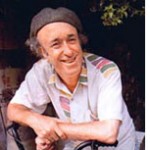By Dan Bloom

CHIAYI CITY, Taiwan — With the Paris climate talks concluded, and
with most climate commentators agreeing that the COP21 ”agreement”
still needs some fine-tuning and follow-up, things are looking good
for the future of humanity.
For Sarah Newman, a 50-something Jewish writer in Cincinnati, this is is
also a time to start looking for an agent and a publisher for a young
adult (YA) cli-fi novel she has completed titled Unless-1. She wrote
the novel for young people (she and her husband have two young boys,
11 and 13, of their own), printed out the entire text in a pre-publication bound book for friends and early readers, and held a book party last month in
her hometown.
In a recent interview with San Diego Jewish World, Newman explained why she decided to write a YA novel about climate issues and how her Jewish background was part of her motivation and inspiration.
“My Jewishness has informed the book and my environmentalism in general,” she said, adding: “Although I was bat mitzvahed, as a kid I stayed away from temple as much as possible. But when my own kids started going to Jewish pre-school and Sunday school, I started reconnecting to my Jewishness through them.”
“I was proud and gratified to discover that, while some religions seem to believe that God created the Earth’s creatures and resources for people to use and dispose of as they like, for Jews being good
stewards of the Earth is a fundamental principal of our religion,” she said. “For one thing, we celebrate the ‘Birthday of the Trees’ every year on Tu B’Shvat. Now, what other religion does that?”
Newman said that the Hebrew concept of ”tikkun olam” (to repair the world) has had a big impact on her and her sitting down to write the novel. writing.
“I wanted to tell a story that would be (for lack of a better word) healing, that would be worth the paper it was printed on,” she said. “In some ways, my book could be viewed as a collection of tikkun olam ‘opportunities’ in which I present situations where the Earth is broken, and hopefully inspire teenage readers to help fix them.”
Jewish ideas and even some Yiddish snuck into her book in other ways, she said.
“In one section of the 400-page novel I was trying to come up with a name for a factory that manufactures tchotchokes in a way that would clearly express that many of the products are junk (and really, 99% of what we buy is disposable). So I just called it the Tchotchke Factory.”
Newman’s novel is set in the year 2112, which is 100 years from when she was at the point in writing the book when she needed to pin down a date.
“I’ve always been an environmentalist, and my life right now largely revolves around my two sons,” she said. “I actually quit my job as a software developer to lead the Green Team at my kids’ elementary school. But when I was a student at Pomona College in California, I was a writing major and hoped to write novels someday, so when one of my sons suggested I write a book, the first
‘what if’ that occurred to me was ‘what if all the bad climate events we’re trying to prevent all really happened?’ From there it just seemed natural to write for teenagers and have characters who love
technology.”
“There’s another reason I wanted to write for kids,” Newman stressed. “At that age, as tweens and teens, they’re still deciding what they want to be when they grow up, what their values are. They’re the ones who can change the world. And it’s their world, anyway. There’s an amazing trend in education right now coined STEAM, which stands for Science Technology Engineering Art and Math, with programs like First Lego League which teaches kids about real world problems and challenges
them to work together to come up with solutions — the opposite of kids sitting alone with video games. We are all over that in my family and I want my book to be a part as well.”
Newman said she has I worked hard to make the book as engaging and entertaining as possible, and to try not to beat her readers over the head with a preachy message about climate issues.
“Of course, the environmental message is there, but hopefully woven seamlessly into the tale,” she said. “So hopefully when my teen readers finish my book, they will feel like they have internalized a
little bit of the messages inside the story to carry with them into their lives.”
The next step, she said, after having spent several years writing the book, is to start looking for a literary agent in New York or Los Angeles to bring the book to the light of day as a published YA novel.
“I’ve been sort of stunned at the way my community has embraced the beta editions of Unless-1, and look forward to seeing real copies in real bookstores,” she said.
*
Bloom, based in Taiwan, is a freelance writer and inveterate email correspondent. He may be contacted via dan.bloom@sdjewishworld.com. Any comments in the space below must include the writer’s full name, and his or her city and state of residence. Those writing from outside the U.S. should indicate the city and country.